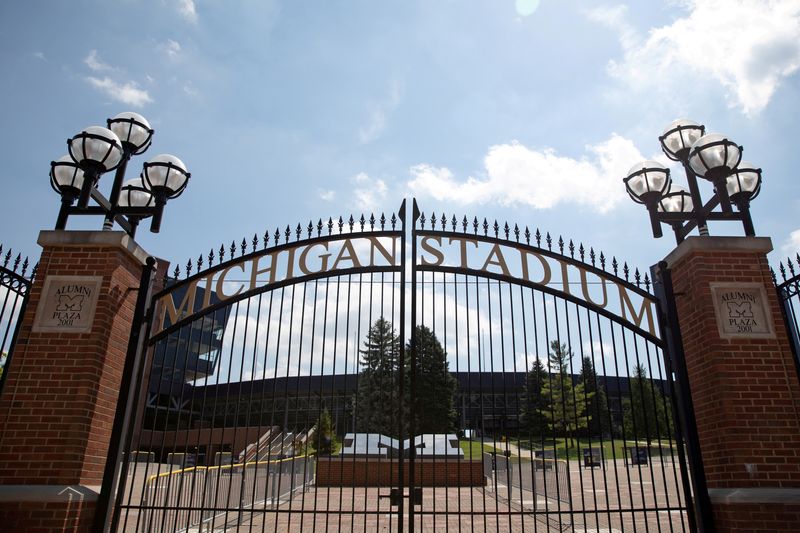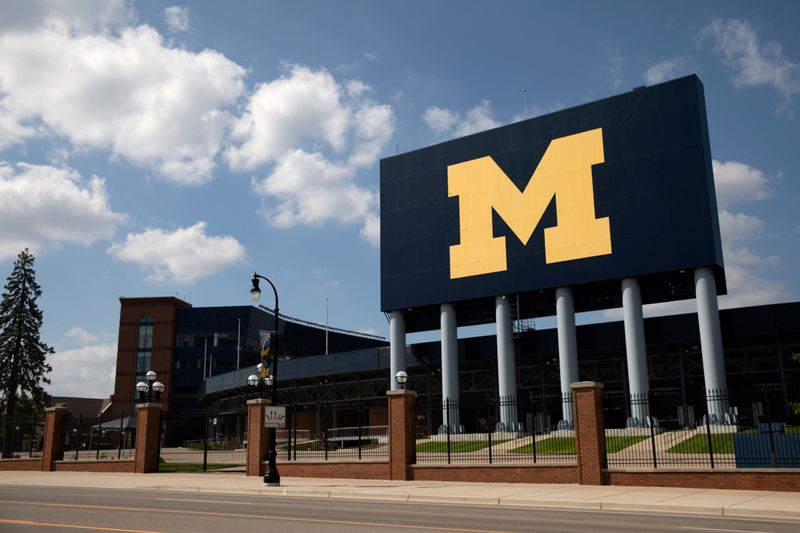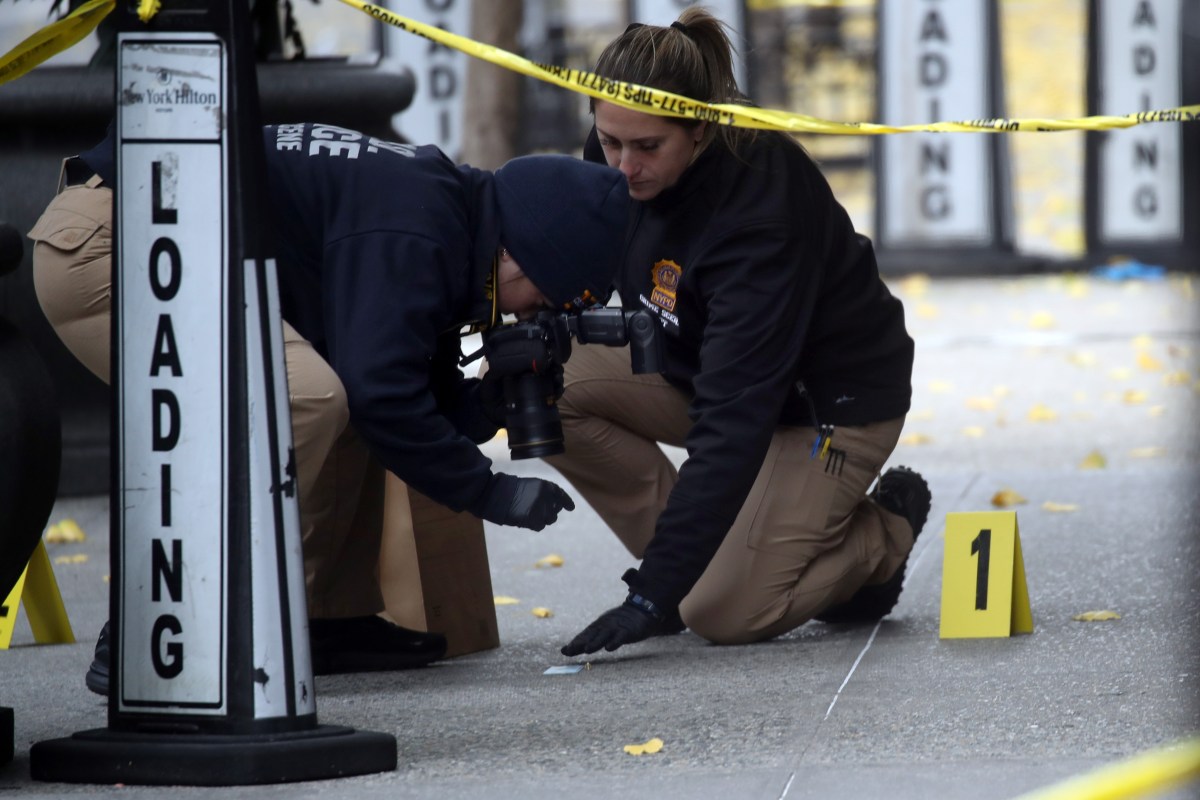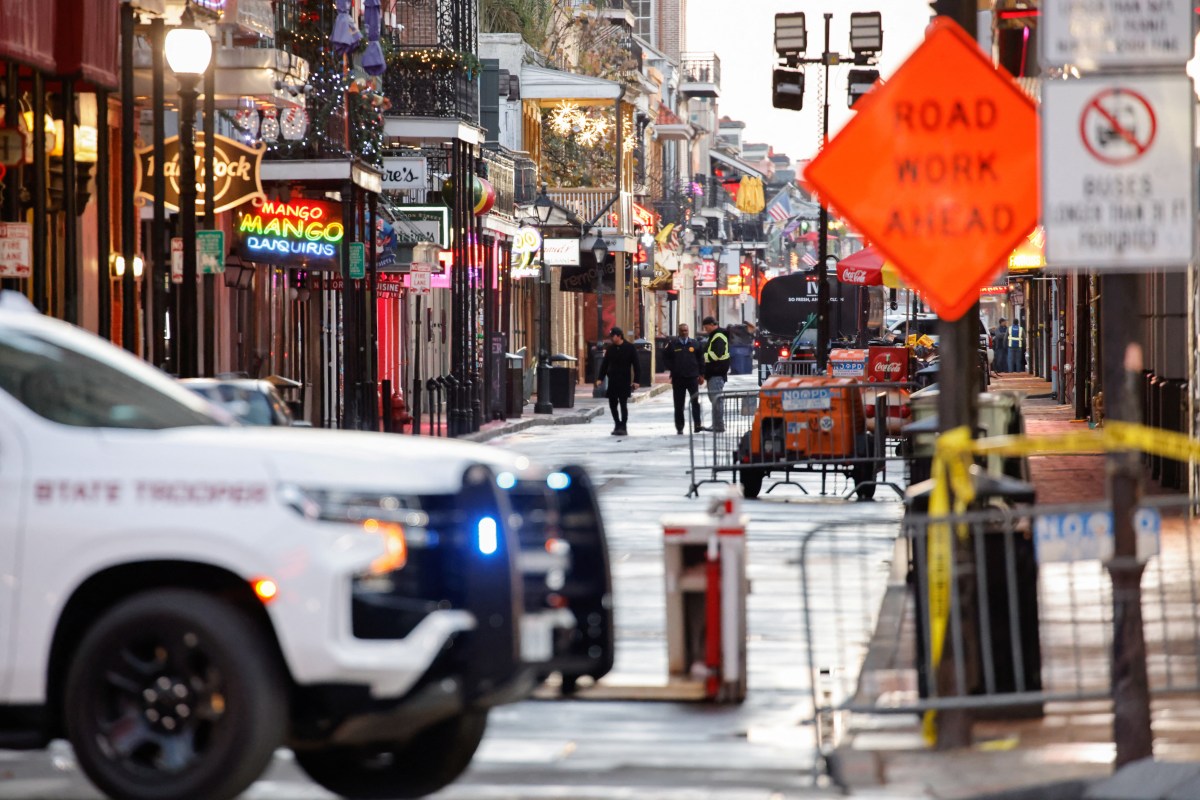ANN ARBOR, Mich. (Reuters) – Football at the University of Michigan isn’t just a sport. It’s a way of life and even a lifeline.
But with the cancellation of the university’s fall football season, that lifeline has been clipped, and coffee shop owner Russ Furrha is among the business owners wondering how they and the city will survive.
Furrha, who was a walk-on player for the Michigan Wolverines in 2008, last month opened the Drip Shop Coffee Co in Ann Arbor, Michigan, across from the team’s home stadium, affectionately known as the Big House.
Part of his bet was being close to the venue, and Furrha was stunned by the Big Ten conference decision on Tuesday to postpone fall sports due to the COVID-19 pandemic.
“It breaks my heart just for the simple fact that we’re not having a football season,” he said from outside his store. “What else are we going to do?”
Furrha is like business owners in many college towns, wondering how many more hits they can take from the novel coronavirus.
For many business owners in Ann Arbor, located less than an hour west of Detroit, Michigan football’s Saturday home games, which sometimes numbered eight in a season, plus the holidays and the city’s annual art fair made up a big portion of sales.
Michigan Stadium is the largest football stadium in the country, seating more than 107,000 people, which makes the stadium the states’ seventh largest city on game days.
“One appeal of college towns is they’re not filled with chain restaurants and bars,” said John U. Bacon, an author of several best-selling books on college football and an Ann Arbor resident.
“They tend to be mom-and-pop shops, which as a result are more vulnerable to what’s happening. I’ve already seen a number of great Ann Arbor institutions fall by the wayside and I’m sure there are more to come sadly,” he added, describing the city now as a “gorgeous ghost town.”
Andy Mignery, owner of two juice bars and co-owner of the Pretzel Bell, a downtown restaurant that hosts crowds of Michigan football fans on game days, estimates Ann Arbor will lose $85 million due to the canceled college season. Some businesses, he said, can earn as much as 40% of their annual revenue on the 12 game days during the football season.
“This is going to continue to compound and magnify the issue that small businesses are already having,” said Mignery, who was a starting tight end for Michigan when he played from 1999 to 2003, during which he was a teammate of one of Michigan’s most prominent football alums, all-pro NFL quarterback Tom Brady.
Mignery called the idea of a spring football season a “farce” given the physical demands that would be put on players who would have to turn around to play again next fall.
For regular fans and students, the loss was more visceral.
Wearing a Michigan baseball cap and face mask outside The M Den, a Michigan clothing and gear retailer in downtown Ann Arbor, Mike Brown, 74, of Niles, Michigan, wondered how he and his wife will spend their Saturdays.
“I’m disappointed,” he said. “I wanted to see football this year, no doubt about it. I was holding out hope they could pull something off.”
Jacob Berch, a 19-year-old Michigan sophomore sitting outside a restaurant nearby said he can’t imagine what the fall semester will be like without football. “It’s a bit of a bummer.”
(This story has been refiled to remove second headline)
(Reporting by Ben Klayman in Ann Arbor, Michigan; Editing by Leslie Adler)
























